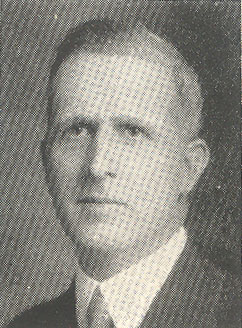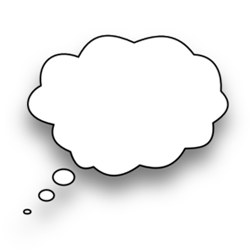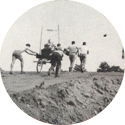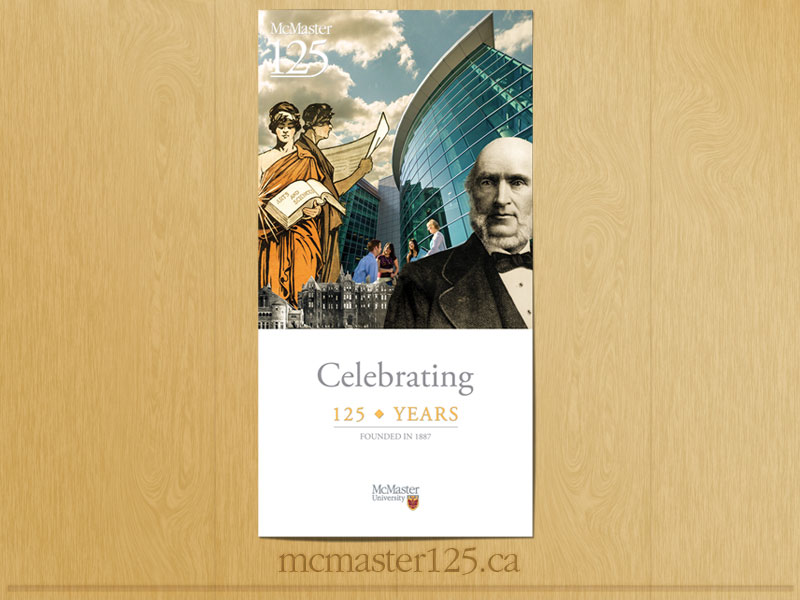Chester New

Our Absent Minded Professor; Dr. Chester New
By Mary Ellen Burville, ’50
A few weeks ago, I received a letter from Jack Passmore, ’33. He shared with me a Dr. New story. It recounted an incident which occurred when Jack was history student at Mac. It went like this:
One day in the ‘30s as Dr. New was leaving on some errands downtown, his wife asked, “Chester, would you please buy me a pound of moth balls?”
Later in the morning, he went to the post office to buy some stamps, and laid the bag of moth balls, which by then he had purchased, on a counter along with his letters. As he stamped and posted his letters, he noticed a parcel sitting on the counter. Being a kindly person, he took it to the postmaster, and said, “Someone must have forgotten his parcel,” and home he went.
“Did you get my moth balls, Chester?” asked his wife.
”Oh, my gosh,” he exclaimed, as he remembered.
When Dr. New told the story, Jack recalled, he burst into laughter, and said, “Can you imagine my embarrassment trying to explain to the postmaster that the moth balls really belonged to me?”
Dr. New is now often remembered as the most absent–minded professor that McMaster has ever had. But what was the man and professor really like to those of us who spent four years as his honour history students? It would be presumptuous of me to speak for all of them; let me describe my Dr. New, as I remember him.
He was a tall and slender gentleman, with thinning white hair, a rather hawk–like nose, and piercing, alert eyes. Because he was short–sighted, he always carried pince–nez glasses with him –or did when he had not forgotten them; they were his trademark. He had beautifully slender, elegant hands, which were often in motion as he constantly put on and replaced those gold–rimmed pince–nez.
My first impressions of Dr. New in the classroom were doleful indeed. To introduce us to history on a grand scale, he began with a description of how the history of football could be written. Unfortunately, I had arrived at McMaster after a childhood on a Manitoba wheat farm, and literally did not know one end of a football field from another. I listened to Dr. New in horror, and wondered if I had been mistaken in my choice of a major subject.
Fortunately, that introduction was soon over, and we were launched upon the true (to me) world of historic learning. He set the stage and unrolled the events of history across it as a general would unroll his battle plans. Not that the digressions off the topic ceased: it was that the digressions themselves became a part of the history that Dr. New himself had lived. He had a chatty lecture style which gave his subject area vitality and an immediacy that blurred the distinction between the book and the man.
The relationship between faculty and students were much more formal then than they are today. We had such respect and awe for Dr. New that we were always a little nervous in his presence. At least once a term, he had a private interview with each of us when he returned our major essay. Those interviews were an ordeal. The long corridor on the third floor of University Hall which led to Dr. New’s office in the Tower was paced by nervous students on the appointed day.
When our turn came, we entered a large and untidy office. A great trestle table ran from wall to wall, and served as Dr. New’s desk. It was covered with piles of books, manuscripts, letters, faculty notices, and our essays. In spite of his absentmindedness, he claimed to know where everything was on that desk, and I never knew him to misplace one of our papers or exams. He knew exactly what his comments would be to each What a relief it was to leave his office with even a reasonable mark, for he was not an easy marker. How we congratulated those who were through, and encouraged those whose ordeal was still to come.
Dr. New was a modest, almost shy man, with a very kind heart. He had a particular fondness for his honour students, which I did not fully appreciate until I graduated and returned for Grads’ Day. In those days, the alumni had a coffee party in the morning at which the faculty returned in large numbers. Dr. New would eagerly await the greetings of his former students. His eyes would light up with delight as any one of us approached.
One sad year when he was very old, in constant pain from the shingles which made his last years miserable, not many students returned. When he saw me, he beamed with relief, and said, “I knew you would be here! Have you seen any of the others?” It was only then that I realized how much we meant to him –and I made sure I never missed a Grads’ Day while he was still alive.
Two personal experiences recall Dr. New’s warmth to his students.
About six years after I had graduated, and six years after he had retired, I was caring for my two baby daughters at home, and feeling as if somehow the world was passing me by. It occurred to me that if only I could start to work on my masters I could creatively fill a gap in my life. I telephoned Dr. New just to ask him what the requirements would be for a master of arts. Dr. New said, “I’m just delighted that you want to get your masters. I’ll telephone Dean Herb Armstrong right away, and arrange it all.” He hung up the phone, and did just as he had promised.
Another six years passed, Dr. New had died, my daughters were in school, and I had become a full–time school librarian. My thesis was written, and I was ready for my oral examination. Nervous, I walked into a small seminar room at the University, and there on the wall was that marvelous Panabaker portrait of Dr. New. I hadn’t known that it existed. It was so real that I felt as though he were right there in the room. I thought to myself, “Why, I can’t possibly fail.” I felt relaxed, then, and confident. I did pass, and I knew that he would have rejoiced with me.





